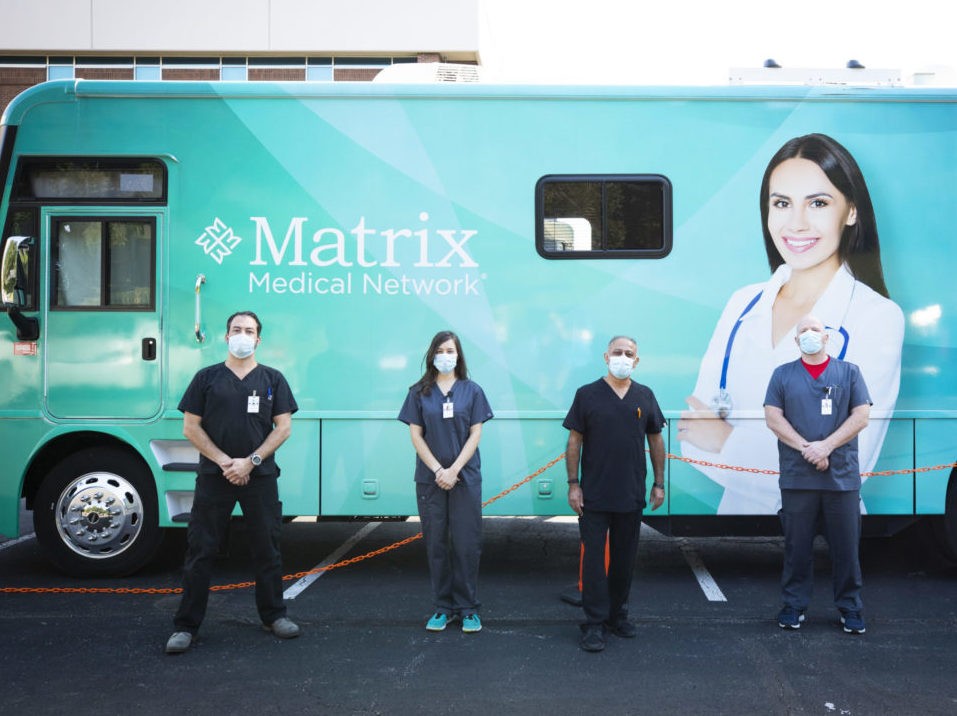ICAP Ramps Up Research To Stop Covid-19
As the coronavirus pandemic threatened the health and lives of people around the world, ICAP marshalled the resources of its two renowned research centers in New York City to fast-track critical research into the treatment and prevention of COVID-19.
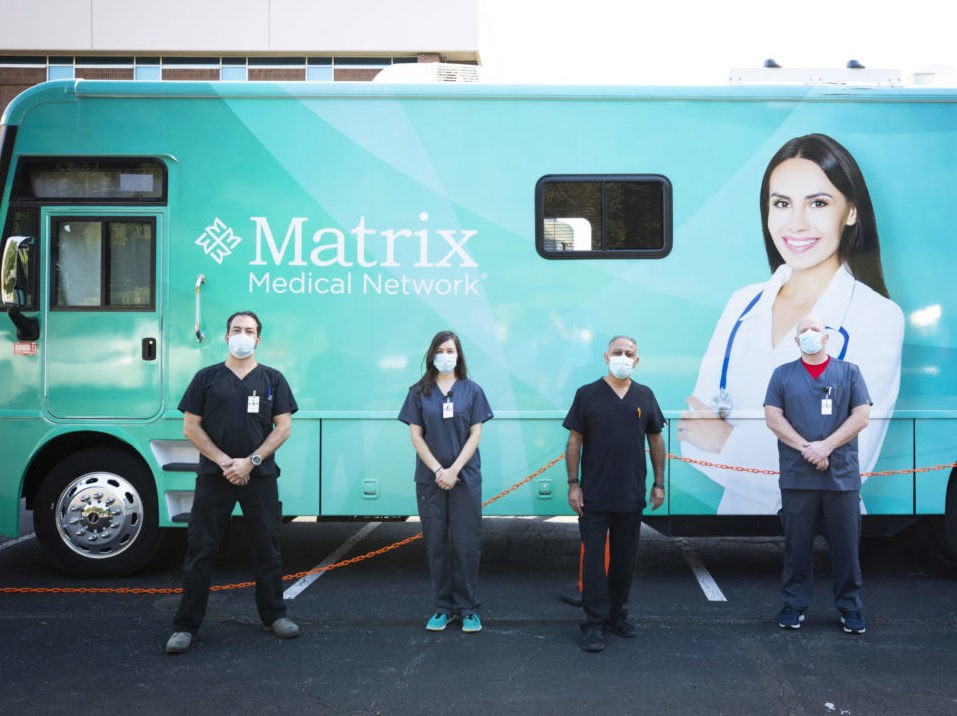
Vaccine development was urgent, so ICAP teamed up with government and private partners to launch phase III clinical trials. In rapidly gearing up, ICAP’s Bronx Prevention Center and Harlem Prevention Center built on their long history of conducting world-class HIV and tuberculosis clinical trials, and ICAP’s deep community roots provided a ready pathway to volunteers for the testing. Located in multi-ethnic communities of New York City, these research centers also ensured a population diversity in the clinical trials that is essential for global distribution of a vaccine. “Different groups of people may have different responses to the same vaccine. It’s important that communities of color, who have historically been under represented in clinical trials, have the opportunity to participate in COVID-19 vaccine trials,” said Jessica Justman, MD, senior technical director at ICAP.
At the Bronx Prevention Center, under Justman’s leadership, ICAP participated in AstraZeneca’s Phase III double-blind, placebo-controlled study to assess the safety, efficacy and immunogenicity of the vaccine compared to a placebo. The vaccine is a recombinant form of an adenovirus which is unable to replicate. To bring the trial to adults throughout the community, ICAP connected with the Fred Hutchinson Cancer Research Center, a long-time partner, and collaborated with their outreach service vendor Metrix Medical Network to use mobile health clinics, increasing access to the investigational vaccines.
At its Harlem Prevention Center, ICAP participated in the massive ENSEMBLE study underway at over 200 clinical research sites in the United States and internationally. The trial involved more than 50,000 volunteers over age 18, with significant representation of people over the age of 60. Testing a single-dose vaccine in development by Janssen, a Johnson & Johnson company, this phase III trial offered the potential to significantly streamline future vaccination efforts. It was the only single-dose vaccine in development in the United States at the time.
Both the Bronx and Harlem Research Centers also participated in a study for Regeneron Pharmaceuticals to assess the safety and efficacy of a one-time subcutaneous infusion of monoclonal antibodies in preventing COVID-19 in household contacts of individuals infected with SARS-CoV-2. Dr. Ellen Morrison, the principal investigator of the Regeneron Study at ICAP, explained that household transmission fuels the COVID-19 epidemic. “This is particularly problematic for the multigenerational households living in the Bronx and Harlem,” she said. “Children attend school and the younger adults are the essential workers in our communities; unfortunately, this increases risk, especially for older members of the household.”
Testing proves what works and what doesn’t. Both research outcomes are critically important to ultimately reaching a solution. ICAP’s clinical trials contributed to findings that the AstroZeneca and Janssen vaccines were less promising than other vaccines in development by Moderna and Pfizer. Both of those vaccines, however, are mRNA vaccines – a relatively new technology that, until COVID-19, has never been widely deployed, licensed, or authorized for use. While countries around the world have moved forward with the Moderna and Pfizer vaccines to inoculate their people, currently planned production is only enough to vaccinate 11.5% of the world’s population in 2021. ICAP Global Director Wafaa El-Sadr has been an advocate for global health equity for over two decades, and she joined with two colleagues in a recent New York Times Op-Ed, to point out that unless vaccines still in the testing pipeline prove to have equal efficacy and can be quickly manufactured, then there may be critical shortages.
“Viruses know no borders. Protecting Americans from COVID-19 requires protecting all people from COVID-19. We cannot end the COVID-19 pandemic until everyone, across the world, can access highly effective vaccines.”
New York Times OP-ED
El-Sadr is calling for aggressive government action in the United States to increase manufacturing capacity of the high-quality vaccines that are already proven and to provide support for global distribution. Reminding government leaders of the success of the President’s Emergency Plan for AIDS Relief (PEPFAR), which is estimated to have saved 19 million lives, El-Sadr and her colleagues are suggesting to President Biden that he can once again demonstrate what can be accomplished with generosity and partnership that builds on global health expertise.
With its network of partnerships with ministries of health in more than 30 countries, ICAP is at the ready to help drive the global distribution of COVID-19 vaccine to people who need this potentially lifesaving inoculation around the world.
RESPONSIVE
WORLDWIDE
RESOURCEFUL
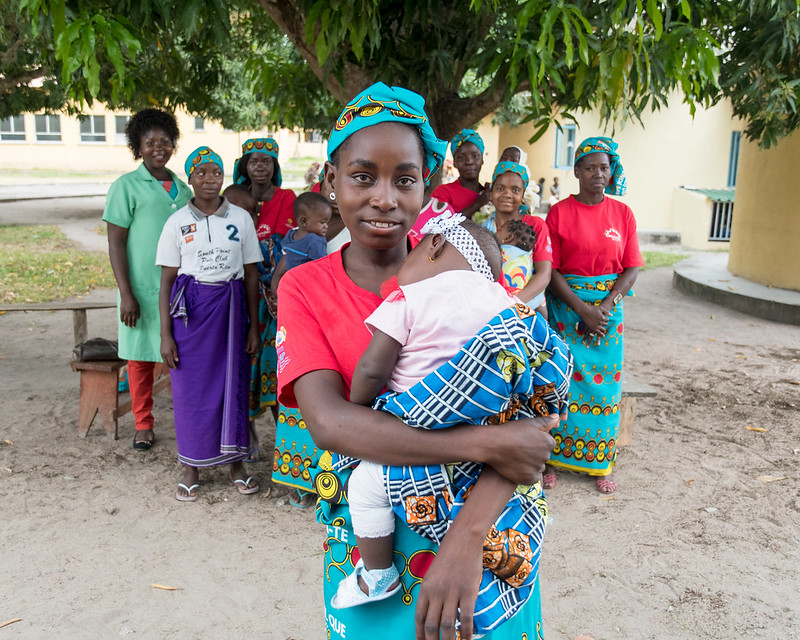
Sidebar Story Title
Vaccine development was urgent, so ICAP teamed up with government and private partners to launch phase III clinical trials. In rapidly gearing up, ICAP’s Bronx Prevention Center and Harlem Prevention Center built on their long history of conducting world-class HIV and tuberculosis clinical trials, and ICAP’s deep community roots provided a ready pathway to volunteers for the testing. Located in multi-ethnic communities of New York City,
Letter from the Director
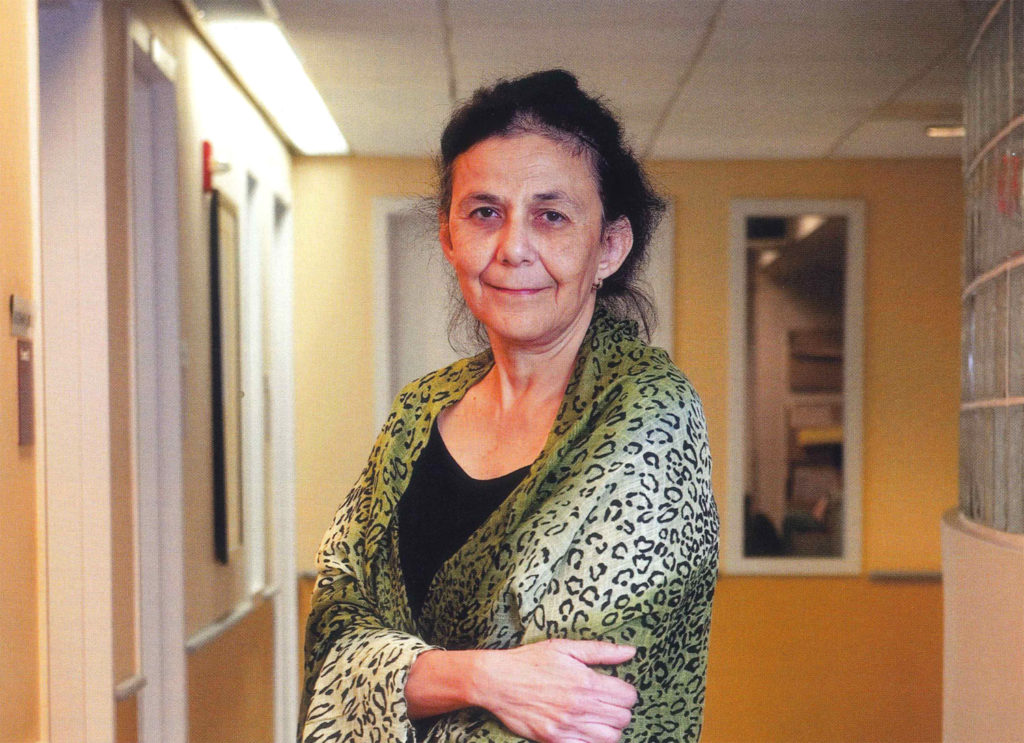 Lorem ipsum dolor sit amet, consectetur adipiscing elit. Etiam congue mi sed efficitur pharetra. In maximus vestibulum vulputate. Nulla congue, ex sed malesuada pulvinar, lorem risus varius neque, at tempor ligula tellus in felis. Aenean luctus urna sit amet diam lacinia molestie. Nulla et elit vel mi aliquam tincidunt vitae nec diam. Morbi dolor lacus, consequat at suscipit nec, faucibus in sem. Fusce ultricies est dolor, ac mollis libero tincidunt quis. Donec blandit ut eros eu dignissim. Sed nec sapien consectetur, vehicula nulla ac, blandit nunc. Praesent efficitur finibus aliquet. Curabitur vehicula auctor leo eu laoreet. Vestibulum a erat massa.
Lorem ipsum dolor sit amet, consectetur adipiscing elit. Etiam congue mi sed efficitur pharetra. In maximus vestibulum vulputate. Nulla congue, ex sed malesuada pulvinar, lorem risus varius neque, at tempor ligula tellus in felis. Aenean luctus urna sit amet diam lacinia molestie. Nulla et elit vel mi aliquam tincidunt vitae nec diam. Morbi dolor lacus, consequat at suscipit nec, faucibus in sem. Fusce ultricies est dolor, ac mollis libero tincidunt quis. Donec blandit ut eros eu dignissim. Sed nec sapien consectetur, vehicula nulla ac, blandit nunc. Praesent efficitur finibus aliquet. Curabitur vehicula auctor leo eu laoreet. Vestibulum a erat massa.
Donec tincidunt risus felis, sit amet fringilla lectus tincidunt at. Etiam id ullamcorper velit, in placerat quam. Nulla diam elit, convallis ut nisl vel, dapibus finibus quam. Nulla vel dignissim sem. Duis non lacus id mauris tempus rutrum. Donec ultrices congue condimentum. Maecenas urna justo, vulputate at pellentesque nec, fermentum a dolor.
Duis malesuada turpis vel venenatis cursus. Nulla sed elementum enim. Sed eu nisi non ante commodo euismod sit amet sed libero. Morbi felis neque, porta in blandit hendrerit, sodales ac est. Pellentesque vitae ullamcorper leo. Donec sed consequat elit. Donec accumsan leo vitae molestie volutpat. Curabitur molestie urna at pellentesque accumsan. Nunc lacinia, sem eu viverra finibus, magna turpis rhoncus nunc, a varius tortor lacus quis orci. Proin sodales enim id felis feugiat blandit. Aenean consectetur diam et nunc ultricies laoreet. Fusce vel ante sed ligula tincidunt consequat quis a odio. In accumsan placerat diam. Donec tincidunt nulla id nibh tincidunt lacinia. Nam fermentum non est vel eleifend. Donec nec felis euismod, aliquam erat eget, scelerisque dui.
Vestibulum tincidunt non ligula ut consequat. Pellentesque et massa ut lorem dictum finibus vel vitae elit. Curabitur ac nibh aliquet, mollis felis ut, congue sem. Fusce a ornare lacus, ut elementum nisl. Nullam ac interdum dui. Quisque et sem pharetra, aliquet nisi at, efficitur diam. Vivamus volutpat posuere lacus vel commodo. Mauris ultrices risus ac ex eleifend vestibulum. Sed venenatis nibh non mi aliquet tempus. Aenean porta arcu eu libero aliquet, iaculis tincidunt mauris pellentesque. Duis volutpat ullamcorper ipsum, eu tempus sem vulputate vel. Sed facilisis, enim vitae blandit lacinia, sem nisl congue lacus, ac imperdiet lorem lectus pharetra leo. Morbi quis libero eu dui lacinia porttitor quis in tortor.
Proin dui diam, volutpat vel sem vel, tincidunt facilisis urna. Sed augue nunc, faucibus at ante id, faucibus aliquet ex. Vivamus rhoncus volutpat nisl eget sollicitudin. Aenean a egestas nisl. In et hendrerit eros. Curabitur massa nunc, suscipit nec congue ut, lobortis id arcu. Integer purus neque, venenatis ac pulvinar in, consectetur sed mi. Quisque tristique risus id quam porttitor dictum. Etiam vitae rhoncus purus. Vivamus imperdiet lorem in convallis lacinia. Cras in pulvinar ligula, id congue erat. Integer pretium diam in orci laoreet, eu convallis ex convallis. Donec hendrerit magna eu risus aliquam gravida. In hac habitasse platea dictumst. Duis urna nunc, venenatis sed cursus sed, auctor ut leo. Praesent molestie mauris quis arcu hendrerit suscipit.
Nunc venenatis, enim a consequat ullamcorper, lorem sapien porta nulla, eget blandit ligula ante at leo. Cras faucibus volutpat lorem, quis elementum velit imperdiet eu. Duis et pharetra lectus. Duis nec lacus arcu. Donec vitae feugiat enim, nec volutpat enim. Phasellus laoreet ornare orci at euismod. Pellentesque sagittis neque eget tortor convallis, in rutrum tortor egestas. Sed pellentesque pellentesque arcu, vitae dictum elit convallis vitae. Vestibulum vitae justo lobortis, elementum magna et, iaculis eros. Nulla facilisi. Aliquam faucibus sem augue, vel tempor risus porta ut. Cras vel sem nibh. Phasellus lacinia lacus at nulla mollis, et convallis dolor eleifend. Aenean tristique, metus ut porta aliquam, dolor magna fermentum enim, ac dictum nunc lacus non purus. Vestibulum vitae porta massa. Nulla viverra ex at dolor placerat, in euismod urna facilisis.
In suscipit volutpat leo ac gravida. Donec eu malesuada ex. Praesent semper tortor ac nisi dignissim, in viverra enim venenatis. Phasellus et metus porta, tincidunt odio at, porta nisi. Quisque ac dignissim tortor. Aliquam vulputate purus at urna sodales, et ultrices tortor dignissim. Donec bibendum arcu id euismod pretium. Vivamus ac purus tincidunt, volutpat lectus eu, vulputate eros. Aenean tincidunt auctor facilisis.
Integer eleifend lectus commodo posuere tincidunt. Proin neque nibh, tincidunt eget sem sed, efficitur maximus augue. In vel luctus ante, et interdum purus. Integer dapibus arcu quis pharetra pellentesque. Vestibulum et pellentesque ipsum, et congue nibh. Aliquam tincidunt elementum diam vitae condimentum. In eros magna, dictum a massa venenatis, tincidunt aliquet orci. Integer ligula urna, consequat sed faucibus ac, tempor ut velit. Mauris.
Wafaa El-Sadr
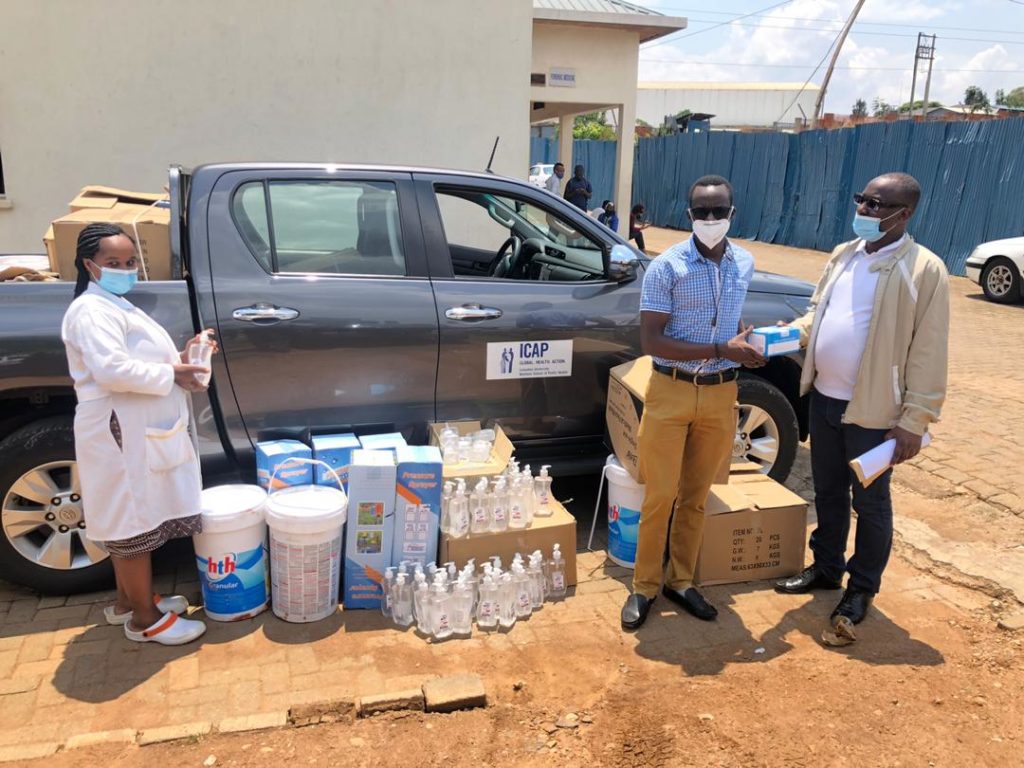
Sidebar Story Title
Vaccine development was urgent, so ICAP teamed up with government and private partners to launch phase III clinical trials. In rapidly gearing up, ICAP’s Bronx Prevention Center and Harlem Prevention Center built on their long history of conducting world-class HIV and tuberculosis clinical trials, and ICAP’s deep community roots provided a ready pathway to volunteers for the testing. Located in multi-ethnic communities of New York City,
Letter from the Director
 Lorem ipsum dolor sit amet, consectetur adipiscing elit. Etiam congue mi sed efficitur pharetra. In maximus vestibulum vulputate. Nulla congue, ex sed malesuada pulvinar, lorem risus varius neque, at tempor ligula tellus in felis. Aenean luctus urna sit amet diam lacinia molestie. Nulla et elit vel mi aliquam tincidunt vitae nec diam. Morbi dolor lacus, consequat at suscipit nec, faucibus in sem. Fusce ultricies est dolor, ac mollis libero tincidunt quis. Donec blandit ut eros eu dignissim. Sed nec sapien consectetur, vehicula nulla ac, blandit nunc. Praesent efficitur finibus aliquet. Curabitur vehicula auctor leo eu laoreet. Vestibulum a erat massa.
Lorem ipsum dolor sit amet, consectetur adipiscing elit. Etiam congue mi sed efficitur pharetra. In maximus vestibulum vulputate. Nulla congue, ex sed malesuada pulvinar, lorem risus varius neque, at tempor ligula tellus in felis. Aenean luctus urna sit amet diam lacinia molestie. Nulla et elit vel mi aliquam tincidunt vitae nec diam. Morbi dolor lacus, consequat at suscipit nec, faucibus in sem. Fusce ultricies est dolor, ac mollis libero tincidunt quis. Donec blandit ut eros eu dignissim. Sed nec sapien consectetur, vehicula nulla ac, blandit nunc. Praesent efficitur finibus aliquet. Curabitur vehicula auctor leo eu laoreet. Vestibulum a erat massa.
Donec tincidunt risus felis, sit amet fringilla lectus tincidunt at. Etiam id ullamcorper velit, in placerat quam. Nulla diam elit, convallis ut nisl vel, dapibus finibus quam. Nulla vel dignissim sem. Duis non lacus id mauris tempus rutrum. Donec ultrices congue condimentum. Maecenas urna justo, vulputate at pellentesque nec, fermentum a dolor.
Duis malesuada turpis vel venenatis cursus. Nulla sed elementum enim. Sed eu nisi non ante commodo euismod sit amet sed libero. Morbi felis neque, porta in blandit hendrerit, sodales ac est. Pellentesque vitae ullamcorper leo. Donec sed consequat elit. Donec accumsan leo vitae molestie volutpat. Curabitur molestie urna at pellentesque accumsan. Nunc lacinia, sem eu viverra finibus, magna turpis rhoncus nunc, a varius tortor lacus quis orci. Proin sodales enim id felis feugiat blandit. Aenean consectetur diam et nunc ultricies laoreet. Fusce vel ante sed ligula tincidunt consequat quis a odio. In accumsan placerat diam. Donec tincidunt nulla id nibh tincidunt lacinia. Nam fermentum non est vel eleifend. Donec nec felis euismod, aliquam erat eget, scelerisque dui.
Vestibulum tincidunt non ligula ut consequat. Pellentesque et massa ut lorem dictum finibus vel vitae elit. Curabitur ac nibh aliquet, mollis felis ut, congue sem. Fusce a ornare lacus, ut elementum nisl. Nullam ac interdum dui. Quisque et sem pharetra, aliquet nisi at, efficitur diam. Vivamus volutpat posuere lacus vel commodo. Mauris ultrices risus ac ex eleifend vestibulum. Sed venenatis nibh non mi aliquet tempus. Aenean porta arcu eu libero aliquet, iaculis tincidunt mauris pellentesque. Duis volutpat ullamcorper ipsum, eu tempus sem vulputate vel. Sed facilisis, enim vitae blandit lacinia, sem nisl congue lacus, ac imperdiet lorem lectus pharetra leo. Morbi quis libero eu dui lacinia porttitor quis in tortor.
Proin dui diam, volutpat vel sem vel, tincidunt facilisis urna. Sed augue nunc, faucibus at ante id, faucibus aliquet ex. Vivamus rhoncus volutpat nisl eget sollicitudin. Aenean a egestas nisl. In et hendrerit eros. Curabitur massa nunc, suscipit nec congue ut, lobortis id arcu. Integer purus neque, venenatis ac pulvinar in, consectetur sed mi. Quisque tristique risus id quam porttitor dictum. Etiam vitae rhoncus purus. Vivamus imperdiet lorem in convallis lacinia. Cras in pulvinar ligula, id congue erat. Integer pretium diam in orci laoreet, eu convallis ex convallis. Donec hendrerit magna eu risus aliquam gravida. In hac habitasse platea dictumst. Duis urna nunc, venenatis sed cursus sed, auctor ut leo. Praesent molestie mauris quis arcu hendrerit suscipit.
Nunc venenatis, enim a consequat ullamcorper, lorem sapien porta nulla, eget blandit ligula ante at leo. Cras faucibus volutpat lorem, quis elementum velit imperdiet eu. Duis et pharetra lectus. Duis nec lacus arcu. Donec vitae feugiat enim, nec volutpat enim. Phasellus laoreet ornare orci at euismod. Pellentesque sagittis neque eget tortor convallis, in rutrum tortor egestas. Sed pellentesque pellentesque arcu, vitae dictum elit convallis vitae. Vestibulum vitae justo lobortis, elementum magna et, iaculis eros. Nulla facilisi. Aliquam faucibus sem augue, vel tempor risus porta ut. Cras vel sem nibh. Phasellus lacinia lacus at nulla mollis, et convallis dolor eleifend. Aenean tristique, metus ut porta aliquam, dolor magna fermentum enim, ac dictum nunc lacus non purus. Vestibulum vitae porta massa. Nulla viverra ex at dolor placerat, in euismod urna facilisis.
In suscipit volutpat leo ac gravida. Donec eu malesuada ex. Praesent semper tortor ac nisi dignissim, in viverra enim venenatis. Phasellus et metus porta, tincidunt odio at, porta nisi. Quisque ac dignissim tortor. Aliquam vulputate purus at urna sodales, et ultrices tortor dignissim. Donec bibendum arcu id euismod pretium. Vivamus ac purus tincidunt, volutpat lectus eu, vulputate eros. Aenean tincidunt auctor facilisis.
Integer eleifend lectus commodo posuere tincidunt. Proin neque nibh, tincidunt eget sem sed, efficitur maximus augue. In vel luctus ante, et interdum purus. Integer dapibus arcu quis pharetra pellentesque. Vestibulum et pellentesque ipsum, et congue nibh. Aliquam tincidunt elementum diam vitae condimentum. In eros magna, dictum a massa venenatis, tincidunt aliquet orci. Integer ligula urna, consequat sed faucibus ac, tempor ut velit. Mauris.
Wafaa El-Sadr
More Impact Stories
ICAP Ramps Up Research To Stop Covid-19
Lorem ipsum dolor sit amet, consectetur adipiscing elit. Integer nunc nisl, luctus non magna quis, malesuada convallis nunc. Morbi auctor malesuada lacus at commodo. Quisque est urna, cursus quis ante quis, dignissim vehicula metus. Phasellus ligula augue, cursus et ante id, aliquam interdum quam. Curabitur tortor quam, condimentum sit amet lacus

With The Power Of Music, ICAP Shares Lifesaving Information
In the early days of the COVID pandemic, Zimbabwe had low infection rates, and people knew very little about the rapid global spread of the virus.
ICAP Ramps Up Research To Stop Covid-19
Lorem ipsum dolor sit amet, consectetur adipiscing elit. Integer nunc nisl, luctus non magna quis, malesuada convallis nunc. Morbi auctor malesuada lacus at commodo. Quisque est urna, cursus quis ante quis, dignissim vehicula metus. Phasellus ligula augue, cursus et ante id, aliquam interdum quam. Curabitur tortor quam, condimentum sit amet lacus

With The Power Of Music, ICAP Shares Lifesaving Information
In the early days of the COVID pandemic, Zimbabwe had low infection rates, and people knew very little about the rapid global spread of the virus.
ICAP Ramps Up Research To Stop Covid-19
Lorem ipsum dolor sit amet, consectetur adipiscing elit. Integer nunc nisl, luctus non magna quis, malesuada convallis nunc. Morbi auctor malesuada lacus at commodo. Quisque est urna, cursus quis ante quis, dignissim vehicula metus. Phasellus ligula augue, cursus et ante id, aliquam interdum quam. Curabitur tortor quam, condimentum sit amet lacus

With The Power Of Music, ICAP Shares Lifesaving Information
In the early days of the COVID pandemic, Zimbabwe had low infection rates, and people knew very little about the rapid global spread of the virus.
ICAP Ramps Up Research To Stop Covid-19
Lorem ipsum dolor sit amet, consectetur adipiscing elit. Integer nunc nisl, luctus non magna quis, malesuada convallis nunc. Morbi auctor malesuada lacus at commodo. Quisque est urna, cursus quis ante quis, dignissim vehicula metus. Phasellus ligula augue, cursus et ante id, aliquam interdum quam. Curabitur tortor quam, condimentum sit amet lacus

